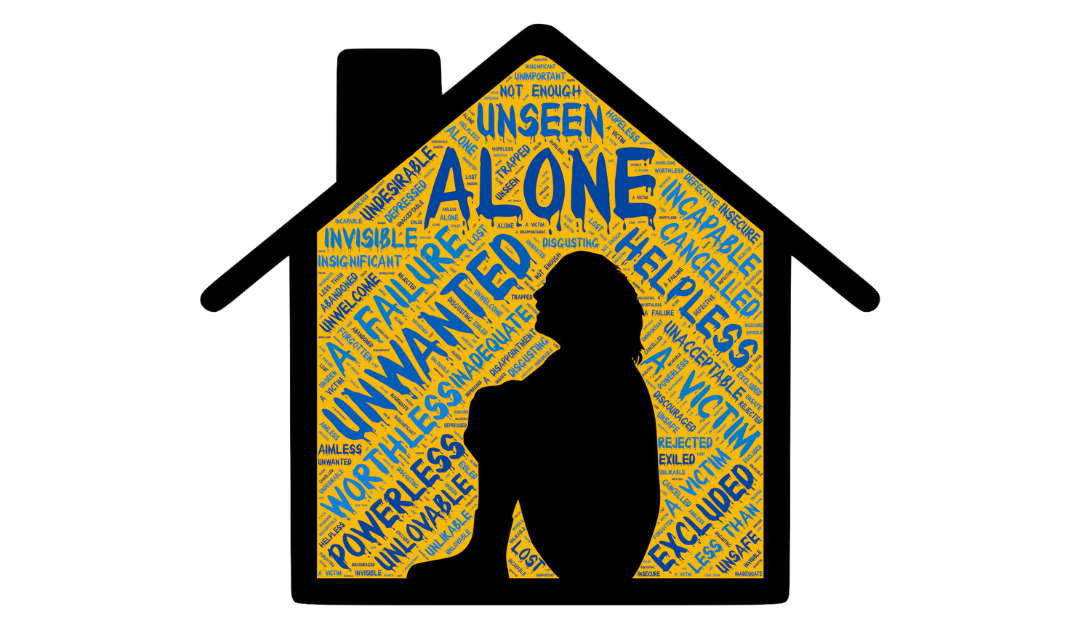
by Calien Trevino | Jun 17, 2024 | Trauma- and Stressor-Related Disorders
It’s a tough subject because family ties are supposed to be strong and supportive, but sometimes, that’s just not the case.
We’ve all heard stories or maybe even experienced firsthand how certain family dynamics can be really unhealthy. Whether it’s constant criticism, manipulation, or just never feeling good enough, toxic family relationships can seriously mess with your mental well-being. So, what do you do when it feels like a family member is more of a burden than a blessing? First off, it’s crucial to recognize that you have the right to prioritize your own mental health. It’s not selfish to distance yourself from toxic influences—it’s self-care.
Setting boundaries is key. Maybe it means limiting how much time you spend with certain relatives or being selective about what personal information you share. Sometimes, though, setting boundaries isn’t enough, and you might need to consider cutting ties altogether. Now, that’s a tough decision, no doubt about it. Cutting off family, even if they’re toxic, can bring up a whirlwind of emotions—guilt, sadness, relief, you name it. But remember, your mental health matters more than maintaining a dysfunctional relationship out of obligation.
It’s also important to build a support system of friends or other family members who do uplift and support you. Surround yourself with people who make you feel valued and respected. And hey, it’s okay to seek professional help too. Therapy can be incredibly helpful in navigating these complex emotions and making decisions that are right for you.
Ultimately, cutting ties with toxic family members is about reclaiming your own happiness and peace of mind. It’s not an easy journey, but it’s one that many people find necessary for their own well-being. Remember, you deserve to live a life free from toxicity, even if it means making some tough choices along the way. Stay strong, take care of yourself, and remember that you are not alone in this journey.

by Calien Trevino | Mar 5, 2024 | Anxiety, General

Self-confidence is the cornerstone of personal empowerment, propelling us to pursue our dreams, embrace challenges, and live authentically. It’s the unwavering belief in our abilities, worth, and potential to navigate life’s twists and turns with resilience and grace. Furthermore, self-assurance increases your likelihood of pursuing opportunities and relationships, as it makes you more comfortable with yourself and your abilities. At its essence, self-confidence is not about being flawless or invincible; it’s about embracing our strengths, acknowledging our weaknesses, and trusting in our capacity to learn and grow from every experience. It’s about embracing our imperfections as part of what makes us beautifully human, and reframing failures as opportunities for growth and self-discovery.
If you’re looking to boost your self-confidence, there are several techniques you can try. One of the most effective methods is to reduce self-criticism and negative self-talk. When you think positively about yourself and your capabilities, you are more likely to feel confident in your abilities. Think about it this way, if you don’t feel good about you, its hard to feel good about anything else.
Another technique is to assert yourself and speak up for yourself when necessary. By standing up for yourself and your beliefs, you demonstrate to others that you have self-respect and that you’re willing to fight for what you believe in.
Surrounding ourselves with supportive relationships is also crucial for building self-confidence. Surrounding ourselves with people who believe in us, encourage our growth, and celebrate our successes reinforces our belief in ourselves and bolsters our confidence to pursue our goals.
Finally, there are various ways to increase your level of confidence, such as reducing stress, learning new skills, being creative, interacting with others, taking care of your physical health, spending time in nature, and getting sufficient sleep. By following these tips, you can build your confidence and feel more prepared to face life’s challenges head-on.
Remember, you were born to be real, not perfect.

by Calien Trevino | Feb 21, 2024 | General, Trauma- and Stressor-Related Disorders
In a world where physical health often takes the spotlight, it’s crucial to shine a light on mental health too.
The importance of seeking help for mental health struggles cannot be overstated, yet many still hesitate due to the fear of societal judgment and stigma. But it’s time to rewrite this narrative. Mental health is just as vital as physical health, if not more so. Our minds deserve the same care and attention as our bodies. Ignoring mental health concerns can lead to serious consequences, affecting every aspect of our lives, from relationships to work performance.
Yet, despite its prevalence, the stigma surrounding mental health still persists. People fear being labeled as “weak” or “broken”  if they admit to struggling with their mental well-being. This fear often leads to silence and isolation, exacerbating the problem further. But here’s the truth: seeking help for mental health is a sign of strength, not weakness. It takes courage to acknowledge when we’re struggling and to reach out for support. And contrary to what the stigma may suggest, there is no shame in prioritizing our mental well-being. In essence, breaking the silence and seeking mental health help is not only important for individual well-being but also for creating a more supportive and understanding society. It empowers individuals to take control of their mental health and live healthier, more fulfilling lives.
if they admit to struggling with their mental well-being. This fear often leads to silence and isolation, exacerbating the problem further. But here’s the truth: seeking help for mental health is a sign of strength, not weakness. It takes courage to acknowledge when we’re struggling and to reach out for support. And contrary to what the stigma may suggest, there is no shame in prioritizing our mental well-being. In essence, breaking the silence and seeking mental health help is not only important for individual well-being but also for creating a more supportive and understanding society. It empowers individuals to take control of their mental health and live healthier, more fulfilling lives.
Breaking the silence and seeking mental health help is crucial for several reasons:
- Prevents Escalation: Addressing mental health concerns early can prevent them from worsening over time. By breaking the silence and seeking help, individuals can access support and interventions to manage their symptoms effectively.
- Reduces Stigma: Opening up about mental health challenges helps break down the stigma surrounding these issues. When more people speak openly about their experiences and seek help, it normalizes the conversation and encourages others to do the same without fear of judgment.
- Improves Well-being: Seeking mental health help enables individuals to prioritize their well-being. Through therapy, counseling, or other forms of support, individuals can learn coping strategies, develop healthier thought patterns, and enhance their overall mental wellness.
- Strengthens Relationships: Communication is key to healthy relationships, and being open about mental health struggles fosters deeper connections with others. Seeking help can involve reaching out to loved ones for support, strengthening bonds and building a network of understanding and care.
- Enhances Functioning: Untreated mental health issues can impact various areas of life, including work, education, and social interactions. By addressing these concerns and seeking appropriate help, individuals can improve their functioning and overall quality of life.
- Promotes Personal Growth: Seeking help for mental health challenges is a courageous step that can lead to personal growth and resilience. Through therapy and self-reflection, individuals can gain insights into themselves, develop coping skills, and navigate life’s challenges more effectively.
By breaking the silence and speaking out about our mental health, we not only empower ourselves but also inspire others to do the same. We pave the way for a society where seeking help for mental health is not only accepted but encouraged. So, let’s challenge the stigma together. Let’s create a culture where conversations about mental health are met with compassion and understanding, rather than judgment and shame. Let’s prioritize our mental well-being and encourage others to do the same.
Remember, you are not alone, and seeking help is a brave and commendable choice. Your mental health matters, and it’s okay to ask for support. Together, with Nova Therapy, we can break the stigma and build a world where everyone feels safe and supported in their journey toward mental wellness.





 if they admit to struggling with their mental well-being. This fear often leads to silence and isolation, exacerbating the problem further. But here’s the truth: seeking help for mental health is a sign of strength, not weakness. It takes courage to acknowledge when we’re struggling and to reach out for support. And contrary to what the stigma may suggest, there is no shame in prioritizing our mental well-being. In essence, breaking the silence and seeking mental health help is not only important for individual well-being but also for creating a more supportive and understanding society. It empowers individuals to take control of their mental health and live healthier, more fulfilling lives.
if they admit to struggling with their mental well-being. This fear often leads to silence and isolation, exacerbating the problem further. But here’s the truth: seeking help for mental health is a sign of strength, not weakness. It takes courage to acknowledge when we’re struggling and to reach out for support. And contrary to what the stigma may suggest, there is no shame in prioritizing our mental well-being. In essence, breaking the silence and seeking mental health help is not only important for individual well-being but also for creating a more supportive and understanding society. It empowers individuals to take control of their mental health and live healthier, more fulfilling lives.









